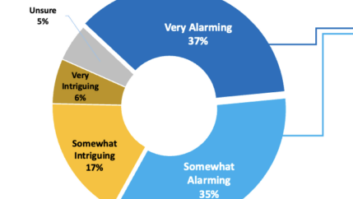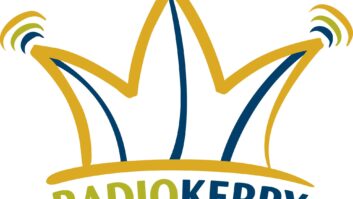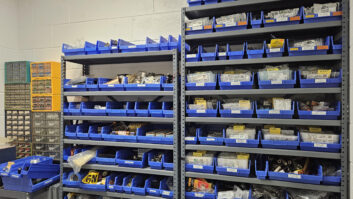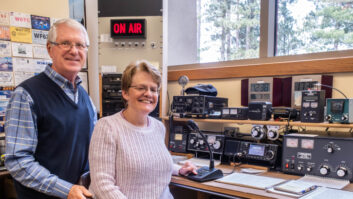One in a series of occasional articles about people who are remaking the face of traditional engineering.
CONCORD, N.H. Steven Gallagher admits he was in the minority of students attending the New Hampshire Technical Institute. While classmates pursued studies in mechanical, architectural or electrical engineering and were interested in video game design, he was dreaming of becoming a radio broadcast engineer.
Gallagher, 22, is in his first radio job since graduating from the school in 2007 with a major in computer engineering and a minor in electrical engineering. He is a broadcast technician for New Hampshire Public Radio in Concord, N.H., responsible for a variety of studio and computer maintenance. He has already helped rebuild the transmitter site of non-commercial WEVO(FM) in Concord.
New Hampshire Public Radio, based in Concord, operates the 50,000 kW WEVO along with five other transmitters and four translators across the Granite State. It broadcasts local programming in addition to programs from National Public Radio, Public Radio International and American Public Media.

NHPR has gone digital at most of its transmitter sites and plans to expand its HD Radio coverage across the state, station officials say. It has yet to commence multicasting.
For Gallagher, who was hired fulltime at NHPR in late 2007 after completing a six-month internship, the opportunity to learn hands-on broadcast engineering skills at such a young age is not being wasted.
Described as a “hardworking young man” by the station’s chief engineer, Michael Saffel, Gallagher provides engineering support around the studios and at the transmitter site.
On-call
“I’m on call and work with the other engineers to ensure we stay on the air and make sure the studios are kept up,” Gallagher said. “I interface with all of the computer systems and have worked specifically with Burk Technology on remote control issues and functionality at some of our different sites. I’m just absorbing as much as I can.”
WEVO’s facility includes a master control, edit suites, production studios, office space and work areas. The public broadcaster uses Broadcast Electronics’ AudioVault for digital automation.
Earlier this year, Gallagher was a recipient of a $1,000 scholarship from the Association of Public Radio Engineers to attend the NPR Labs/APRE Public Radio Conference in Las Vegas. He attended seminars and workshops and rubbed shoulders with fellow engineers for three days.
“I took in so much just meeting the other engineers. It was a terrific learning setting for me. A lot of the material dealt with NPR’s technical initiatives, including its HD Radio 10 dB hybrid mode developments.”
The scholarship, which covered airfare, hotel and some expenses for the three days, is funded by donations from APRE members, additional station managers and interested broadcast equipment vendors, according to the announcement of Gallagher’s award.
He graduated from Pinkerton Academy High School in 2005 but long had an interest in electronics growing up in Derry, N.H., often tearing apart things that weren’t working, like the family’s VCR or phone, to see how they worked.
“I really didn’t know how to fix things but I learned. I just knew some kind of a career in electronics was where I was headed,” Gallagher said. “In high school I immediately jumped into as many technology classes as I could.”
That led to Gallagher enrolling in New Hampshire Technical Institute, where he believes he was the only one interested in broadcast engineering.
“I was a bit of an oddball, I guess. They don’t have a specific broadcast engineering degree there, but I certainly took classes that certainly help me in my current position,” Gallagher said.
At New Hampshire Technical Institute, Gallagher majored in computer engineering and minored in electrical engineering. He has yet to receive his degree from NHTI, but plans to continue his formal education.
Gallagher, a member of SBE Chapter 110, has taken advantage of SBE Webinar training and local training sessions.
Seeks experience
“I want to learn more about antennas and the finer details of how radio works. I have a very basic understanding of RF and a general idea of how it works, but I’m eager to work more on them.”
Gallagher gained valuable experience helping rebuild the FM transmitter site for WEVO in August. The station added a new transmitter building, antenna and transmitter.
“It was a month-long project. We added the pre-fab building, new transmission line, transmitter and antenna. I found out I still have a lot to learn.”
Gallagher credits Saffell with being a mentor and taking time to show him the workings of FM radio.
Saffell wrote in Gallagher’s APRE recommendation letter, “He takes initiative to improve our facilities and operations whenever he can.”
Gallagher, who plays guitar and loves music, thinks terrestrial radio is still very relevant, despite his generation’s preference for portable audio devices like iPods and other MP3 players.
“I definitely think terrestrial analog radio is going to be around for a long, long time. HD Radio is definitely still developing. I think a lot of consumers are holding back because of the perceived lack of benefit. Streaming is huge since people are online all day now,” Gallagher said. “But there are still things I can get from radio that I cannot find anywhere else.”
Those include local news and “analysis of the economy; which I find hard to get from any other media source,” he said.
Gallagher knows he is a young man working in an industry known for its grizzled tech veterans. He said he appreciates the opportunity presented him at his age.
“The older generation, the baby boomers, they’ll all be retiring before long. I think there will be a lot of room for younger people like me to move up in the industry.”












